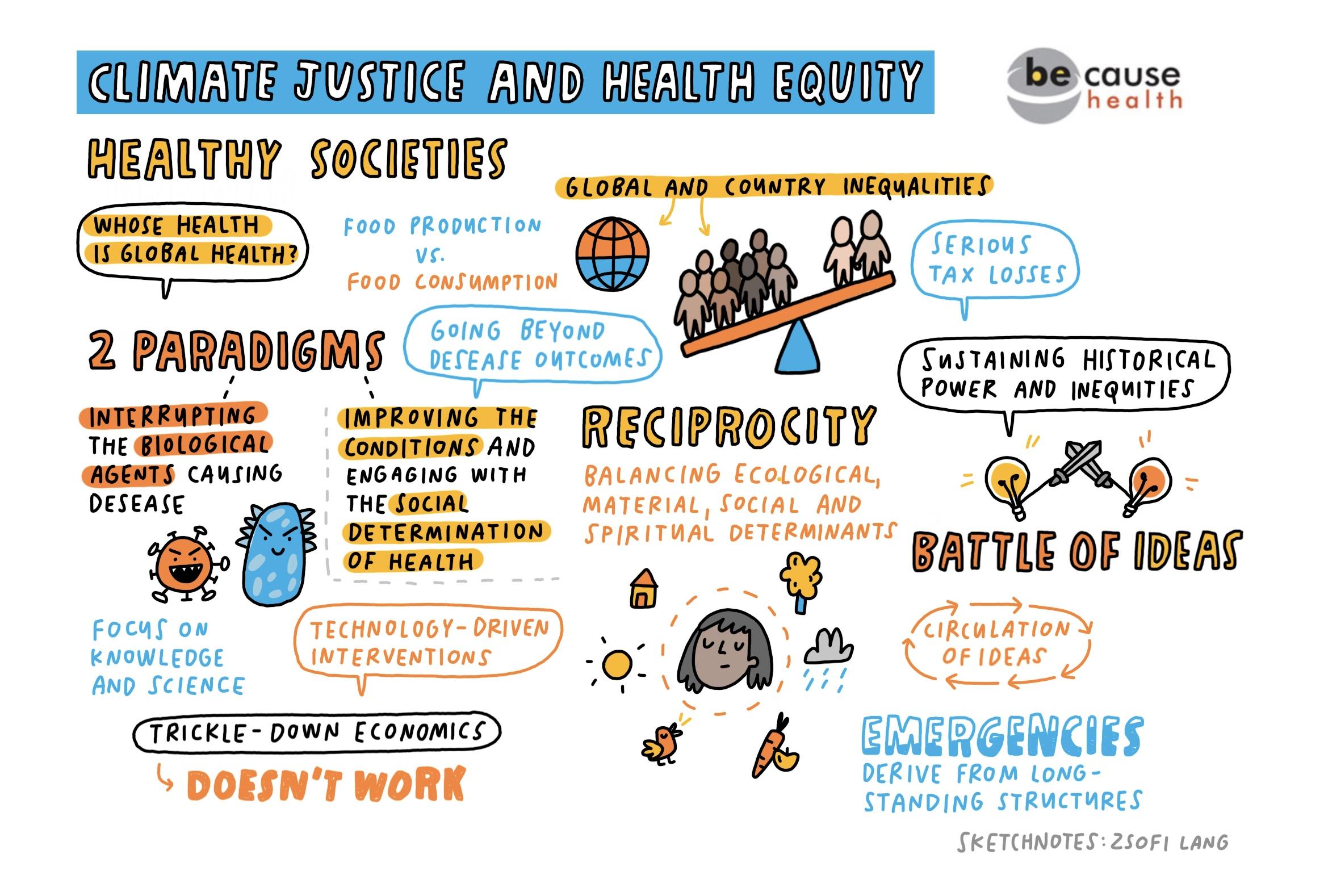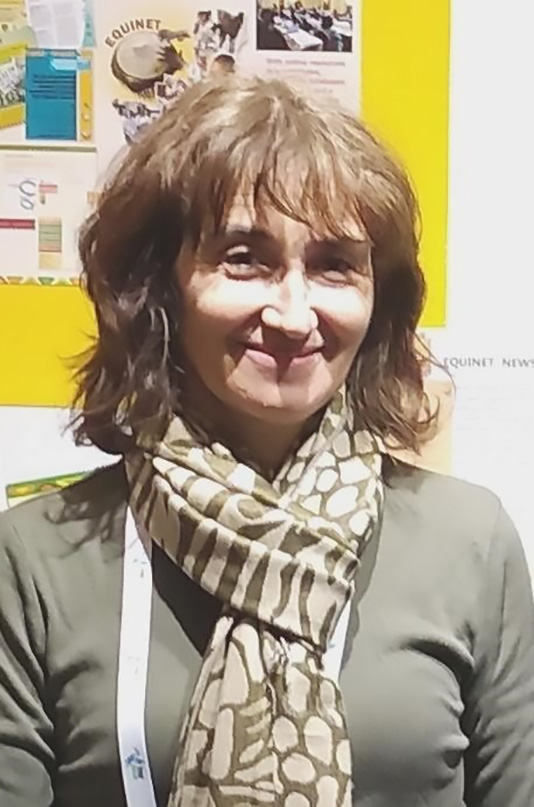
Rene Loewenson set out to resolve three questions during her presentation:
- Whose health is ‘global health’?
- Why recognise diversity, circulation and contestation?
- What’s next?
Whose health is ‘global health’?
Or whose ideas on health are coming through? We should recognise that many inequities (wealth, food, climate harms, etc), widened in the COVID-19 pandemic, indicate a historical trend and refer to economic injustice and illicit financial flows and tax evasion. Biosecurity, digital surveillance and biomedicine are flawed approaches to the structural determinants of the pandemic.
Why recognise diversity, circulation and contestation?
There is a history of contestation of ideas between individual biomedical causation vis-a-vis more comprehensive worldviews (Sumaq Kawsay, African Ubuntu, Ayurveda, Aristotle). The pathogenic biomedical paradigm rose in colonial and continued in ‘post-colonial’ application. This includes expropriation of ‘local’ therapies, with Western biomedical ‘modern’, ‘superior’ therapies. She asks the audience to think about diversity, circulation and contestation, to think about plurality.

"The crisis is inherent within our current systems of production and consumption and [...] contesting this is an essential part of moving forward."
Secondly, the doctor makes a diagnosis and prognosis: what is the situation with our 9 planetary boundaries? The prognosis is not linear: there are ecological tipping points and depending on actual future global warming (minus or plus 2°C) different climate scenarios are possible. The patient's condition has direct and indirect health effects (ecological and social) on humans, and the impact of the vulnerabilities are unequal.
What’s next?
Ideas matter. By thinking about different worldviews and knowledge, we need to listen and enable other voices on the causes and actions. We need to think about and promote comprehensive public health. So what’s next: currently, there is a widening debate and contestation. Crisis is inherent and not sufficient. We need accumulation and propositional activism in society. Rene argues for global social movements to come together and sees momentum for this.
